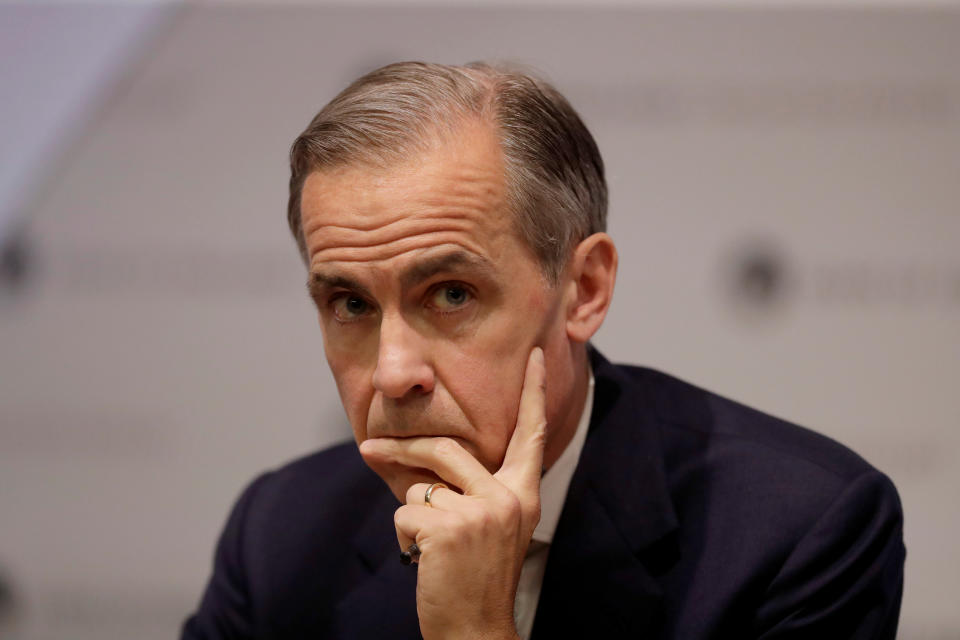Bank of England warns no-deal Brexit is getting more likely

A no-deal Brexit is becoming more likely and could cause massive disruption to the UK economy, the Bank of England warned on Thursday.
“The perceived likelihood of a no-deal Brexit has increased since the start of the year,” the Bank said in its bi-annual Financial Stability Report. The report assess the risks to the UK’s financial system to avoid the kind of problems faced by the banking system in 2008.
Thursday’s report painted a gloomy picture of the outlook for the UK economy, with rising no-deal Brexit risks and increased threats to global growth from rising trade tensions.
The Bank of England said the UK is now more prepared for a no-deal Brexit than it was in November 2018. Progress has been made on rolling over trade deals and signing up EU clients to new EU-registered subsidiaries of banks.
But the risk of severe economic disruption remains.
“Even with a smooth adjustment, this would still be a major economic shock,” Bank of England governor Mark Carney said in a press conference after the report’s release.
He said that while the UK was more prepared, the country was also relying on the EU to prepare. A lack of preparedness on the European side could have a knock-on effect on the UK economy.
“It matters how prepared the European side is,” Carney said. “Eight of 10 trucks that go through Dover/Calais go back. If you don’t have a traffic jam in Dover, you might get one in Calais. It’s all interconnected.”
The Financial Policy Committee wrote in their report: “Actions by businesses and authorities since November have resulted in some improvement in the preparedness of thee UK economy for a no-deal Brexit. However, material risks of economic disruption remain.”
In November, the Bank of England warned that a worst-case no-deal Brexit could cause the worst recession since the second world war.
The central bank also warned on Thursday that “the risks to the global outlook have increased during the first half of the year.”
“Rising trade tensions have resulted in declining business confidence and pose material downside risks to global output growth,” the Bank wrote in its report.
Despite rising no-deal Brexit risks and the US-China trade spat weighing on global growth, the Bank judged that the UK financial system was still in a fit state to withstand even the worst case scenario.
“Even if a protectionist-driven global slowdown were to spill over to the UK at the same time as a worst-case disorderly Brexit, the Financial Policy Committee judges that the core UK banking system would be strong enough to absorb, rather than amplify, the resulting economic shock,” the committee wrote in their report.
The UK’s biggest banks have £1tn in liquid assets and this would be enough to sustain them for up to three months if they were ever locked out of international financing markets.

 Yahoo Finance
Yahoo Finance 